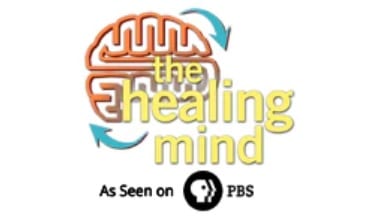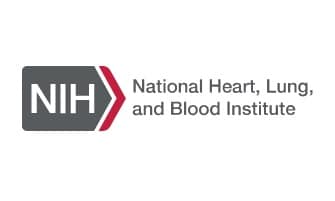On this page
At a glance
“Sleeping well is fundamental for healing. If you’re not sleeping well, it’s worth focusing on it right away,” writes CancerChoices co-founder Michael Lerner.
Sleep disruption is common in people with cancer. It can be caused by anxiety and by changes in family life, finances, and routines. Side effects and symptoms of cancer and treatments also commonly interfere with sleep.1American Cancer Society. What do Do for Sleep Problems. 2023. Viewed April 11, 2025.

Sleep Disruption handbook
If you feel that a lack of sleep might be impacting your health and wellness, quality of life, and ability to function, we invite you to explore options in our Sleep Disruption handbook ›
During sleep—especially sleep at night—our bodies support the optimal functioning of our internal systems. Sleep is also important for thinking, healing, and mental health. Regularly sleeping too little (fewer than 7 hours) or too much (more than 9 hours) are both linked to body terrain › imbalances (such as imbalanced stress hormones) and physical, mental, and emotional problems, in addition to chronic diseases including cancer.2Alschuler LN, Gazella KA. The Definitive Guide to Cancer, 3rd Edition: An Integrative Approach to Prevention, Treatment, and Healing. Berkeley, California: Celestial Arts. 2010; Block KI. Life over Cancer: The Block Center Program for Integrative Cancer Treatment. New York: Bantam Dell. 2009; Liou KT, Root JC et al. Effects of acupuncture versus cognitive behavioral therapy on cognitive function in cancer survivors with insomnia: a secondary analysis of a randomized clinical trial. Cancer. 2020;126(13):3042-3052.
Getting at least seven hours of sleep regularly is one step you can take to improve your resilience and well-being. Adequate and quality sleep may help mitigate side effects of treatment, cancer symptoms, recurrence risk, and improve your treatment response. Medical groups and integrative oncology experts recommend getting enough sleep as part of your anticancer lifestyle approach.
If you’re getting too little sleep, you may want to evaluate how you can get to bed earlier or wake later to give yourself at least seven hours of sleep every night. If you struggle to fall asleep or stay asleep, refer to our Sleep Disruption › handbook for guidance.
For good sleep, Michael recommends getting exercise, early morning sunlight, as well as avoiding electronics and stimulants like caffeine for a few hours before bedtime. Taking relaxing herbs, magnesium, melatonin, or fish oil (in any combination) can also enhance sleep quality, and Michael advises consulting a good source on how much of these supplements to take.
He also points out the power of dreams.
“Dreams are rightly called the royal road to the unconscious. Dreams are a powerful messaging system from the soul or the unconscious to our conscious minds,” Michael writes.
“Keeping a dream journal is a truly beautiful way to learn to listen to the deep wisdom sources within each of us. It may take a while to learn to decipher the language of your dreams. But they can prove a powerful source of healing.”
For more guidance on getting quality rest, see the Helpful links › and Managing your sleep › sections below.
(We emphasize that Sleeping Well by itself will not prevent, cure, or control cancer. Like every other therapy or practice included on this website, Sleeping Well is one component of an individualized integrative plan rather than a stand-alone therapy.)
How can Sleeping Well help you? What the research says
How does Sleeping Well impact your health and quality of life? We present the scientific evidence. Read the in-depth research here ›
The relationship between sleep and cancer is complex and works both ways: sleep affects cancer outcomes, while cancer and cancer treatment can lead to sleep disturbances.3Berisha A, Shutkind K, Borniger J. Sleep disruption and cancer: chicken or egg? Frontiers in Neuroscience. 2022 May 19;16:856235. In the few studies that have looked at sleep in people with different types of cancer before starting treatment, sleep disorders are commonly observed and are different from fatigue or depression.4Mogavero M, DelRosso L, Fanfulla F, Bruni O, Ferri R. Sleep disorders and cancer: state of the art and future perspectives. Sleep Medicine Reviews. 2021 Apr;56:101409; Lopez E, de la Torre-Luque A, Lazo A, Alvarez J, Buela-Casal G. Assessment of sleep disturbances in patients with cancer: cross-sectional study in a radiotherapy department. European Journal of Oncology Nursing. Feb 2016;20:71-76; Lowery-Allison A, Passik S, et al. Sleep problems in breast cancer survivors 1-10 years posttreatment. Palliative and Supportive Care. 2018 Jun;16(3):325-334; Phillips KM, Jim HS, Donovan KA, Pinder-Schenck MC, Jacobsen PB. Characteristics and correlates of sleep disturbances in cancer patients. Supportive Care in Cancer. Feb 2012;20:357-65.
Regularly sleeping more than nine hours can be a side effect of illness, but it may also make illness worse. Researchers often cannot tell whether excess sleep or illness comes first. We do have generally consistent evidence that too little sleep (less than seven hours) is not beneficial for most people.
Sleep disturbances can occur throughout the cancer phases, from diagnosis to treatment and beyond, lasting long into survivorship. Sleep disorders can lower quality of life and lead to other health problems.5Balachandran D, Miller M, Faiz S, Yennurajalingam S, Innominato P. Evaluation and management of sleep and circadian rhythm disturbance in cancer. Current Treatment Options in Oncology. 2021 Jul 2;22(9):81; Divani A, Heidari M, et al. Effect of cancer treatment on sleep quality in cancer patients: A systematic review and meta-analysis of Pittsburgh Sleep Quality Index. Supportive Care in Cancer. 2022 Jan 26;30:4687-4697; Lowery-Allison A, Passik S, et al. Sleep problems in breast cancer survivors 1-10 years posttreatment. Palliative and Supportive Care. 2018 Jun;16(3):325-334.
Improving treatment outcomes
How long and how well you sleep appear to play a role in cancer outcomes. Research suggests that too much sleep (more than 9 hours) and insufficient sleep (less than 7 hours) are linked to higher mortality from cancer. In one meta-analysis of 32 studies, people with cancer who slept 5 to 6 hours a night had a 3% higher mortality risk than those who slept 7 to 8 hours per night.6Stone CR, Haig TR et al. The association between sleep duration and cancer-specific mortality: a systematic review and meta-analysis. Cancer Causes and Control. 2019 May;30(5):501-525. Meanwhile, those who slept 9 to 10 hours a night had a 9% higher risk of death compared to those who slept 7 to 8 hours per night.7Stone CR, Haig TR et al. The association between sleep duration and cancer-specific mortality: a systematic review and meta-analysis. Cancer Causes and Control. 2019 May;30(5):501-525.
However, in a large umbrella review of 69 meta-analyses, long sleep duration was linked with increased cancer-related mortality, but short sleep duration was not. In looking at specific cancers, mortality from lung cancer was the only cancer mortality associated with short and long sleepers.8Li J, Cao D, et al. Sleep duration and health outcomes: an umbrella review. Sleep & Breathing. 2021 Aug;26:1479-1501. It is possible that these inconclusive results reflect differing relationships between sleep and specific cancers. This is discussed in more detail below in Reducing cancer risk ›.
For people with certain advanced cancers, sleep quality appears to influence survival and treatment outcomes. People with metastatic colorectal cancer who have clearly different activity levels between day and night—reflecting healthy circadianrecurring naturally on a twenty-four-hour cycle; your sleep-wake cycle reflects your alignment to the daily cycle, and a mismatch is called circadian disruption rhythms—may live longer and respond better to treatment.9Mormont MC, Waterhouse J et al. Marked 24-h rest/activity rhythms are associated with better quality of life, better response, and longer survival in patients with metastatic colorectal cancer and good performance status. Clinical Cancer Research. 2000 Aug;6(8):3038-45; Innominato PF, Giacchetti S et al. Prediction of overall survival through circadian rest-activity monitoring during chemotherapy for metastatic colorectal cancer. International Journal of Cancer. 2012 Dec 1;131(11):2684-92; Rich T, Innominato PF et al. Elevated serum cytokines correlated with altered behavior, serum cortisol rhythm, and dampened 24-hour rest-activity patterns in patients with metastatic colorectal cancer. Clinical Cancer Research. 2005 Mar 1;11(5):1757-64. In one of the studies involving people with metastatic colorectal cancer, those with good circadian rhythms had five times higher survival rates after two years of follow-up.10Mormont MC, Waterhouse J et al. Marked 24-h rest/activity rhythms are associated with better quality of life, better response, and longer survival in patients with metastatic colorectal cancer and good performance status. Clinical Cancer Research. 2000 Aug;6(8):3038-45 In advanced lung cancer, better sleep quality and shorter time to fall asleep were linked with better survival outcomes.11He Y, Sun LY et al. Sleep quality, anxiety and depression in advanced lung cancer: patients and caregivers. BMJ Supportive and Palliative Care. 2020 Apr 6:bmjspcare-2018-001684. Similarly, healthier cortisol cycles—a hormone regulating stress and sleep—were linked with improved outcomes in metastatic breast and lung cancers.12Sephton SE, Sapolsky RM, Kraemer HC, Spiegel D. Diurnal cortisol rhythm as a predictor of breast cancer survival. Journal of the National Cancer Institute. 2000 Jun 21;92(12):994-1000; Lissoni P, Messina G et al. Efficacy of cancer chemotherapy in relation to synchronization of cortisol rhythm, immune status and psychospiritual profile in metastatic non-small cell lung cancer. In Vivo. 2008 Mar-Apr;22(2):257-62.
Optimizing your body terrain
Sleeping fewer than six hours per night is consistently linked to a higher risk of obesity in both adults and children.13Cappuccio FP, Taggart FM et al. Meta-analysis of short sleep duration and obesity in children and adults. Sleep. 2008 May;31(5):619-26. People who sleep longer may have lower leptina hormone that helps regulate energy balance by inhibiting hunger-to-adiponectina hormone and signaling protein involved in regulating glucose levels and fatty acid breakdown ratios, which indicate an increase in cardiometabolic riska cluster of factors that increase the likelihood of developing cardiovascular disease or type 2 diabetes.14Brady EM, Bodicoat DH et al. Sleep duration, obesity and insulin resistance in a multi-ethnic UK population at high risk of diabetes. Diabetes Research and Clinical Practice. 2018 May;139:195-202.
Sleep can impact body terrain factors linked to cancer growth and spread, including body weight, blood sugar control, immune function, and inflammation. People who sleep fewer than 5.5 hours or more than 9 hours per night tend to have higher body mass indexa number comparing body weight relative to height, which is a rough indicator of healthy weight, underweight, or overweight; a healthy weight is between 18.5 and 25., body weight, and waist circumference compared to those who sleep between six and seven hours per night, which appears to be the optimal range for weight management.15Brady EM, Bodicoat DH et al. Sleep duration, obesity and insulin resistance in a multi-ethnic UK population at high risk of diabetes. Diabetes Research and Clinical Practice. 2018 May;139:195-202. Sleep duration also affects blood sugar control, insulin resistance, and diabetes risk.16Liu PY, Lawrence-Sidebottom D et al. Clamping cortisol and testosterone mitigates the development of insulin resistance during sleep restriction in men. Journal of Clinical Endocrinology and Metabolism. 2021 Aug 18;106(9):e3436-e3448; Nedeltcheva AV, Scheer FA. Metabolic effects of sleep disruption, links to obesity and diabetes. Current Opinion in Endocrinology, Diabetes, and Obesity. 2014 Aug;21(4):293-8; Kothari V, Cardona Z, Chirakalwasan N, Anothaisintawee T, Reutrakul S. Sleep interventions and glucose metabolism: systematic review and meta-analysis. Sleep Medicine. 2021 Feb;78:24-35. Short sleepers (five to six hours) have twice the risk of developing diabetes, while long sleepers (more than eight hours) face nearly a 60% higher risk compared to those who get seven to eight hours of sleep.17Antza C, Kostopoulos G, Mostafa S, Nirantharakumar K, Tahrani A. The links between sleep duration, obesity and type 2 diabetes mellitus. Journal of Endocrinology. 2021 Dec 13;252(2):125-141.
Sleep plays a role in hormone balance, immune function, and inflammation. Short-term sleep deprivation is associated with altered granulocyte (a type of white blood cell) rhythms, affecting a body’s ability to fight bacterial infections.18Ackermann K, Revell VL et al. Diurnal rhythms in blood cell populations and the effect of acute sleep deprivation in healthy young men. Sleep. 2012 Jul 1;35(7):933-40. Sleep disturbances are also linked to increased markers of inflammation in both healthy individuals and people with cancer who experience sleep deprivation.19Rich T, Innominato PF et al. Elevated serum cytokines correlated with altered behavior, serum cortisol rhythm, and dampened 24-hour rest-activity patterns in patients with metastatic colorectal cancer. Clinical Cancer Research. 2005 Mar 1;11(5):1757-64; Motivala SJ. Sleep and inflammation: psychoneuroimmunology in the context of cardiovascular disease. Annals of Behavioral Medicine. 2011 Oct;42(2):141-52. Preliminary studies suggest that poor sleep might even influence gut health, but findings so far have been mixed and more research is needed.20Yao ZW, Zhao BC et al. Relationships of sleep disturbance, intestinal microbiota, and postoperative pain in breast cancer patients: a prospective observational study. Sleep and Breathing. 2020 Nov 19; Zhang SL, Bai L et al. Human and rat gut microbiome composition is maintained following sleep restriction. Proceedings of the National Academy of Sciences of the United States of America. 2017 Feb 21;114(8):E1564-E1571. Additionally, some lifestyle habits when practiced together—including long naps, late meals, and smoking—may contribute to body weight, blood pressure, fasting glucose, and metabolic issues.21Vizmanos B, Cascales AI et al. Lifestyle mediators of associations among siestas, obesity, and metabolic health. Obesity (Silver Spring). 2023 May;31(5):1227-1239.
Managing side effects and promoting wellness
Poor sleep quality is linked to higher anxiety levels among people with lung, breast, and colorectal cancer, while those who report feeling refreshed upon waking also report less anxiety.22Cho OH, Hwang KH. Association between sleep quality, anxiety and depression among Korean breast cancer survivors. Nursing Open. 2021 May;8(3):1030-1037; Papadopoulos D, Kiagia M, Charpidou A, Gkiozos I, Syrigos K. Psychological correlates of sleep quality in lung cancer patients under chemotherapy: a single-center cross-sectional study. Psycho-Oncology. 2019 Sep;28(9):1879-1886; Sun GW, Yang YL et al. Preoperative insomnia and its association with psychological factors, pain and anxiety in Chinese colorectal cancer patients. Supportive Care in Cancer. 2020 Jun;28(6):2911-2919. People with lung cancer, lymphoma, or metastatic colorectal cancer who experience disrupted sleep may feel more fatigue.23Mormont MC, Waterhouse J et al. Marked 24-h rest/activity rhythms are associated with better quality of life, better response, and longer survival in patients with metastatic colorectal cancer and good performance status. Clinical Cancer Research. 2000 Aug;6(8):3038-45; Innominato PF, Giacchetti S et al. Prediction of overall survival through circadian rest-activity monitoring during chemotherapy for metastatic colorectal cancer. International Journal of Cancer. 2012 Dec 1;131(11):2684-92; Papadopoulos D, Kiagia M, Charpidou A, Gkiozos I, Syrigos K. Psychological correlates of sleep quality in lung cancer patients under chemotherapy: a single-center cross-sectional study. Psycho-Oncology. 2019 Sep;28(9):1879-1886; Starreveld DEJ, Habers GEA et al. Cancer-related fatigue in relation to chronotype and sleep quality in (non-)Hodgkin lymphoma survivors. Journal of Biological Rhythms. 2021 Feb;36(1):71-83; Rich T, Innominato PF et al. Elevated serum cytokines correlated with altered behavior, serum cortisol rhythm, and dampened 24-hour rest-activity patterns in patients with metastatic colorectal cancer. Clinical Cancer Research. 2005 Mar 1;11(5):1757-64. Some observational studies suggest people with breast cancer or prostate cancer are less prone to depression if they have better sleep quality.24Cho OH, Hwang KH. Association between sleep quality, anxiety and depression among Korean breast cancer survivors. Nursing Open. 2021 May;8(3):1030-1037; Hoyt MA, Bower JE, Irwin MR, Weierich MR, Stanton AL. Sleep quality and depressive symptoms after prostate cancer: the mechanistic role of cortisol. Behavioral Neuroscience. 2016;130(3):351-356. Sleep disturbances also appear to intensify pain, with studies showing more reported pain or opioid use among people with cancer who suffer from more disturbed sleep.25Crane TE, Miller A, Skiba MB, Donzella S, Thomson CA. Association of chronotype and pain at baseline in ovarian cancer survivors participating in a lifestyle intervention (NRG/GOG 0225). Journal of Clinical Oncology. 2020;38(suppl) abstr 6018); Yao ZW, Zhao BC et al. Relationships of sleep disturbance, intestinal microbiota, and postoperative pain in breast cancer patients: a prospective observational study. Sleep and Breathing. 2020 Nov 19; Sun GW, Yang YL et al. Preoperative insomnia and its association with psychological factors, pain and anxiety in Chinese colorectal cancer patients. Supportive Care in Cancer. 2020 Jun;28(6):2911-2919; Azizoddin DR, Soens MA et al. Perioperative sleep disturbance following mastectomy: a longitudinal investigation of the relationship to pain, opioid use, treatment, and psychosocial symptoms. Journal of Clinical Oncology. 2021 Oct 1;39(28_suppl:192. The relationship between pain and sleep disturbance works in both directions: each can trigger and impact the other.26Theobald DE. Cancer pain, fatigue, distress, and insomnia in cancer patients. Clinical Cornerstone. 2004;6 Suppl 1D:S15-21.
Sleep patterns also may influence body weight, appetite, and overall quality of life for people with cancer. Those with metastatic colorectal cancer who maintain normal rest and activity cycles tend to experience less unintentional weight loss and appetite loss compared to those with disrupted rhythms.27Innominato PF, Giacchetti S et al. Prediction of overall survival through circadian rest-activity monitoring during chemotherapy for metastatic colorectal cancer. International Journal of Cancer. 2012 Dec 1;131(11):2684-92; Rich T, Innominato PF et al. Elevated serum cytokines correlated with altered behavior, serum cortisol rhythm, and dampened 24-hour rest-activity patterns in patients with metastatic colorectal cancer. Clinical Cancer Research. 2005 Mar 1;11(5):1757-64. There is also preliminary evidence that people being treated with chemotherapy report better daily function and emotional well-being when they sleep well at night.28Mormont MC, Waterhouse J et al. Marked 24-h rest/activity rhythms are associated with better quality of life, better response, and longer survival in patients with metastatic colorectal cancer and good performance status. Clinical Cancer Research. 2000 Aug;6(8):3038-45; Rich T, Innominato PF et al. Elevated serum cytokines correlated with altered behavior, serum cortisol rhythm, and dampened 24-hour rest-activity patterns in patients with metastatic colorectal cancer. Clinical Cancer Research. 2005 Mar 1;11(5):1757-64; Block KI, Block PB et al. Making circadian cancer therapy practical. Integrative Cancer Therapies. 2009 Dec;8(4):371-86. People undergoing chemotherapy for lung cancer who reported poor sleep quality also reported higher stress levels than those with good sleep.29Papadopoulos D, Kiagia M, Charpidou A, Gkiozos I, Syrigos K. Psychological correlates of sleep quality in lung cancer patients under chemotherapy: a single-center cross-sectional study. Psycho-Oncology. 2019 Sep;28(9):1879-1886.
Reducing cancer risk
There is conflicting evidence on whether sleeping less than 6 hours causes a slightly higher risk of cancer mortality among people who did not have cancer at the beginning of the study. The evidence is stronger that consistently sleeping more than 9 hours per night is linked to a higher risk of cancer mortality among people who did not enter the study with cancer.30Li Y, Cai S et al. Association between total sleep time and all cancer mortality: non-linear dose-response meta-analysis of cohort studies. Sleep Medicine. 2019 Aug;60:211-218; Ma QQ, Yao Q, Lin L, Chen GC, Yu JB. Sleep duration and total cancer mortality: a meta-analysis of prospective studies. Sleep Medicine. 2016 Nov-Dec;27-28:39-44; Gallicchio L, Kalesan B. Sleep duration and mortality: a systematic review and meta-analysis. Journal of Sleep Research. 2009 Jun;18(2):148-58. Researchers so far have not found a connection between cancer mortality and insomnia or daytime napping.31Ge L, Guyatt G et al. Insomnia and risk of mortality from all-cause, cardiovascular disease, and cancer: systematic review and meta-analysis of prospective cohort studies. Sleep Medicine Reviews. 2019 Dec;48:101215; Zhong G, Wang Y, Tao T, Ying J, Zhao Y. Daytime napping and mortality from all causes, cardiovascular disease, and cancer: a meta-analysis of prospective cohort studies. Sleep Medicine. 2015 Jul;16(7):811-9.
When the relationship between sleep and the risk of developing cancer has been examined, it appears neither very short nor very long sleep are associated with higher overall cancer risk.32Li J, Cao D, et al. Sleep duration and health outcomes: an umbrella review. Sleep Breath. 2021 Aug;26:1479-1501; Titova O, Michaelsson K, et al. Sleep duration and risk of overall and 22 site-specific cancers: A Mendelian randomization study. International Journal of Cancer. 2021 Feb 15;148(4):914-920; Gozal D, Ham S, Mokhlesi B. Sleep apnea and cancer:analysis of a nationwide population sample. Sleep. 2016 Aug 1;39(8):1493-1500; Li X, Huang D, et al. Sleep characteristics and cancer-related outcomes: An umbrella review of systematic reviews and meta-analyses of observational studies. 2022 Dec 8;11(24):7289 However, longer sleep is associated with lower risk of developing hormone-related cancers, including breast, prostate, ovarian, and thyroid cancers. A large meta-analysis suggests that people who sleep more than 9 hours may have a 29% lower risk of developing such cancers than those who sleep 6-8 hours per night.33Zhao H, Yin JY et al. Sleep duration and cancer risk: a systematic review and meta-analysis of prospective studies. Asian Pacific Journal of Cancer Prevention. 2013;14(12):7509-15. In contrast, the same study also found that sleeping more than 9 hours raises the risk of developing colorectal cancer by 29%.34Zhao H, Yin JY et al. Sleep duration and cancer risk: a systematic review and meta-analysis of prospective studies. Asian Pacific Journal of Cancer Prevention. 2013;14(12):7509-15. There is preliminary evidence that people who sleep less than 6 hours per night have 47% higher risk of colorectal adenomas, which can develop into colorectal cancer, than people who sleep at least 7 hours per night.35Thompson CL, Larkin EK et al. Short duration of sleep increases risk of colorectal adenoma. Cancer. 2011 Feb 15;117(4):841-7.
Researchers who reviewed the correlation between various sleep disorders and the onset of cancer found different sets of elevated risks for each sleep disorder. Insomnia, for example, is a risk factor for many tumors including breast, nose, thyroid, bladder, and kidney. Obstructive sleep apnea (OSA) is a risk factor for cancers such as melanoma and breast, lung, kidney, and colorectal.36Mogavero M, DelRosso L, Fanfulla F, Bruni O, Ferri R. Sleep disorders and cancer: state of the art and future perspectives. Sleep Medicine Reviews. 2021 Apr;56:101409; Wu D, Zhao Z, et al. Impact of obstructive sleep apnea on cancer risk: a systematic review and meta-analysis. Sleep & Breathing. 2023 Jun;27(3):843-852; Yap D, Tan N, et al. The association of obstructive sleep apnea with breast cancer incidence and mortality: a systematic review and meta-analysis. Journal of Breast Cancer. 2022 Jun;25(3)149-163; Cheong A, Tan B, et al. Obstructive sleep apnea and lung cancer: a systematic review and meta-analysis. Annals of the American Thoracic Society. 2022 Mar; 19(3):469-475. OSA also increases overall cancer incidence, and the risk of cancer increases with the severity of OSA.37Teo Y, Tan B, et al. Obstructive sleep apnea and the incidence and mortality of gastrointestinal cancers: a systematic review and meta-analysis of 5,120,837 participants. Journal of Gastrointestinal Oncology. 2022 Dec;13(6):2789-2798; Cao Y, Ning P, Li Q, Wu S. Cancer and obstructive sleep apnea: an updated meta-analysis. Medicine (Baltimore). 2022 Mar 11;101(10):e28930; Kenderzska T, Povitz M, et al. Obstructive sleep apnea and incident cancer: a large retrospective multicenter clinical cohort study. Cancer Epidemiology, Biomarkers & Prevention. 2021 Feb;30(2):295-304; Cheng H, Li D. Investigation into the association between obstructive sleep apnea and incidence of all-type cancers: a systematic review and meta-analysis. Sleep Medicine. 2021 Dec;88:274-281; Tan B, Teo Y, et al. Association of obstructive sleep apnea and nocturnal hypoxemia with all-cancer incidence and mortality: a systematic review and meta-analysis. Journal of Clinical Sleep Medicine. 2022 May 1;18(5):1427-1440.
Managing your sleep

Sleep Disruption handbook
If you feel that a lack of sleep might be impacting your health and wellness, quality of life, and ability to function, we invite you to explore options in our Sleep Disruption handbook ›
Three keys to get adequate sleep
The first key is to sleep seven to nine hours every day.
The second key is to promote better sleep if you are in bed but not able to sleep.
Please see our Sleep Disruption handbook for:
- Self-care practices
- Optimizing your sleep environment
- Complementary therapies, including mind-body approaches, natural products, and more
The third key—if you suspect you might have sleep apnea—is to talk to your healthcare provider about how you can test for and treat disordered sleep.
Symptoms of sleep apnea include but are not limited to:38Mayo Clinic Staff. Sleep apnea. Mayo Foundation for Medical Education and Research. April 6, 2023. Viewed February 25, 2025.
- Loud snoring (often noticed by a partner)
- Choking or gasping for air during sleep
- Excessive daytime sleepiness
- Morning headaches
- Dry mouth or sore throat upon waking
- Difficulty concentrating or memory issues
Healing stories
Helpful links
Video
CancerChoices Senior Clinical Consultant Laura Pole, RN, MSN, OCNS, explains the importance of sleep in cancer care.
Play videoReferences







